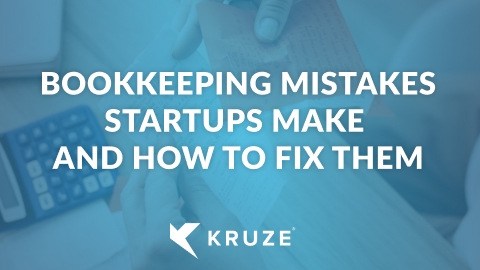
Finding the right bookkeeper is an important step for any venture-funded startup. Accurate books are essential for investor confidence, regulatory compliance, and smart growth, but not every bookkeeper delivers what a fast-moving founder truly needs. Here’s what to prioritize when choosing the best fit for your startup.
1. Proven Accuracy and Attention to Detail
Bookkeeper errors can mean missed expenses, incorrect cash balances, or costly tax filings, and those mistakes can undermine your company’s credibility. Look for candidates with strong references, formal training, or certifications from organizations like the National Association of Certified Public Bookkeepers (NACPB) or the American Institute of Professional Bookkeepers (AIPB). An eye for detail and rigorous processes are critical for startups that want to impress investors and auditors.
2. Experience with Startups and Growth Companies
Bookkeeping for a venture-backed startup is different than bookkeeping for a local small business. A top bookkeeper understands burn rate, runway, cap tables, and the impact of fundraising rounds. Startup experience means they’ll anticipate needs like investor reporting, expense allocation, and multi-entity accounting – plus understand the urgency behind clean, ready-to-share financials.
3. Technology Proficiency and Cloud Accounting Tools
Today’s startups run on cloud accounting platforms and automation, so your bookkeeper should be confident using systems like QuickBooks Online, Xero, or specialized startup software. Tech-savvy bookkeepers save time, reduce errors, and make remote collaboration easier. Ask about their experience with integration, reporting, and data security.
4. Proactive Communication and Problem-Solving
A great bookkeeper doesn’t just process transactions; they flag missing receipts, catch suspicious charges, and help founders avoid costly mistakes. They should be able to explain financial concepts simply, communicate clearly with the startup team, and anticipate questions before they become issues. Strong communication is the bridge between good data and founder confidence.
5. Flexibility and Startup Fit
Startups change fast. Bookkeepers should be able to scale their process as your business evolves, whether that means handling new subsidiaries, changing payroll platforms, or transitioning to accrual accounting. Look for adaptability, willingness to learn, and the instinct to ask “What’s next?” as your team and needs grow.
A Great Bookkeeper is a Smart Startup Investment
Hiring the right bookkeeper means finding someone with startup experience, tech proficiency, attention to detail, and proactive advice. Kruze Consulting works exclusively with venture-funded startups, delivering the expertise and communication founders need for investor-ready, clean books at every growth stage.












